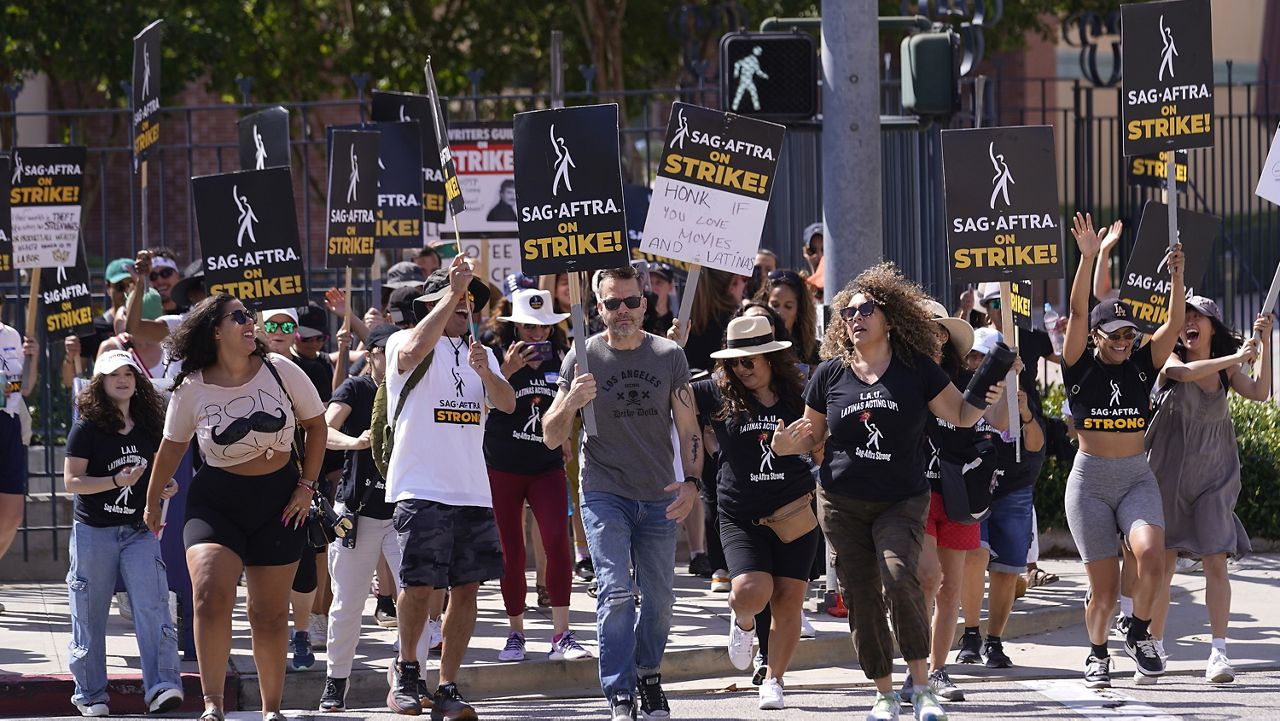A majority of Americans support Hollywood’s striking writers and actors. Two-thirds of survey respondents in a nationwide poll conducted by Data for Progress said they either strongly or somewhat support the strikes, with 18% opposing them.
The 11,500 members of the Writers Guild of America have been striking against the Alliance of Motion Picture and Television Producers since May 2. The WGA is demanding higher residual payments, mandatory staffing requirements and protections against the use of artificial intelligence. Despite two recent meetings between the groups, the WGA and AMPTP have yet to resolve their disagreements.
The 160,000 members of the Screen Actors Guild have been striking against the AMPTP since July 14. SAG is demanding revenue sharing for streaming projects, higher minimum wages and protections against using actors’ likenesses into perpetuity.
The Data for Progress survey found strong support for the demands of both groups: 72% of respondents agreed that TV actors and writers should receive fair compensation and employment terms that account for the shorter seasons and longer hiatuses between seasons on streaming services; 87% agreed they should receive appropriate compensation when their work continues to earn money for corporations from reruns or streaming.
Eighty-five percent of respondents also agreed that actors should have the right to their own image, voice and likeness and should be compensated fairly if it is used with artificial intelligence.
“The data shows that most people understand why the union was forced to go on strike,” SAG-AFTRA National Executive Director and chief negotiator Duncan Crabtree-Ireland said in a statement. “I suspect many are seeing the same dynamic playing out in their own lives, with employers undervaluing their contributions. That’s why this fight is so important.”
The WGA-SAG strike survey was conducted by the left-wing think tank and polling firm founded by data scientist Sean McElwee. Primarily known for its election polling, the organization surveyed 1,124 likely voters nationally from Aug. 3-5 for its poll on the Hollywood strikes. The respondents were weighted to be representative of likely voters by age, gender, education, race, geography and voting history, according to the Data for Progress report.



